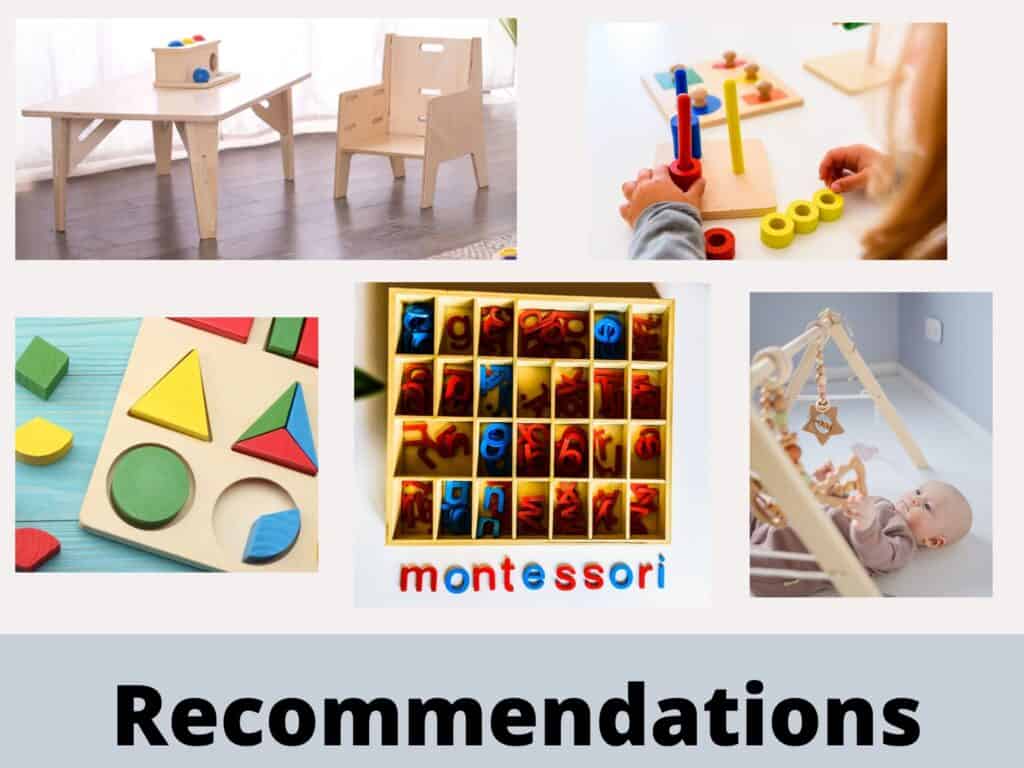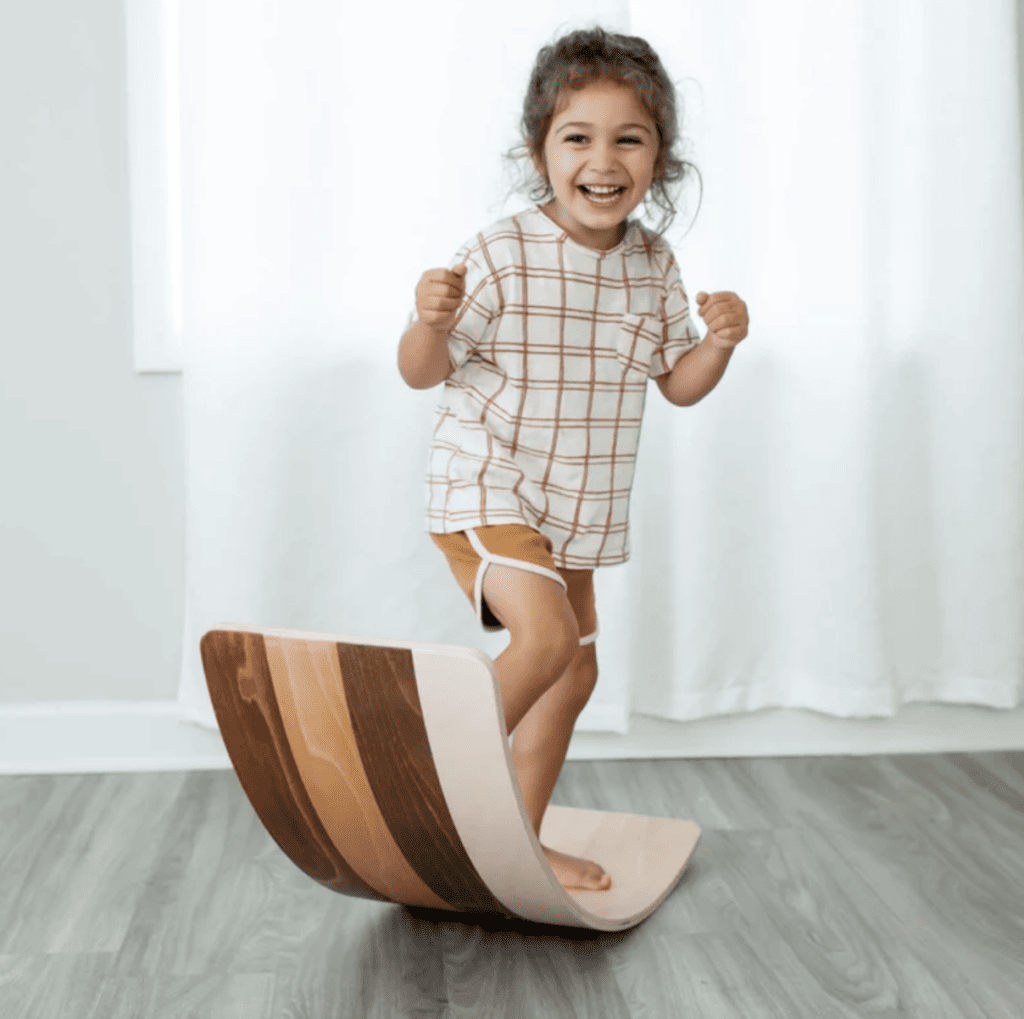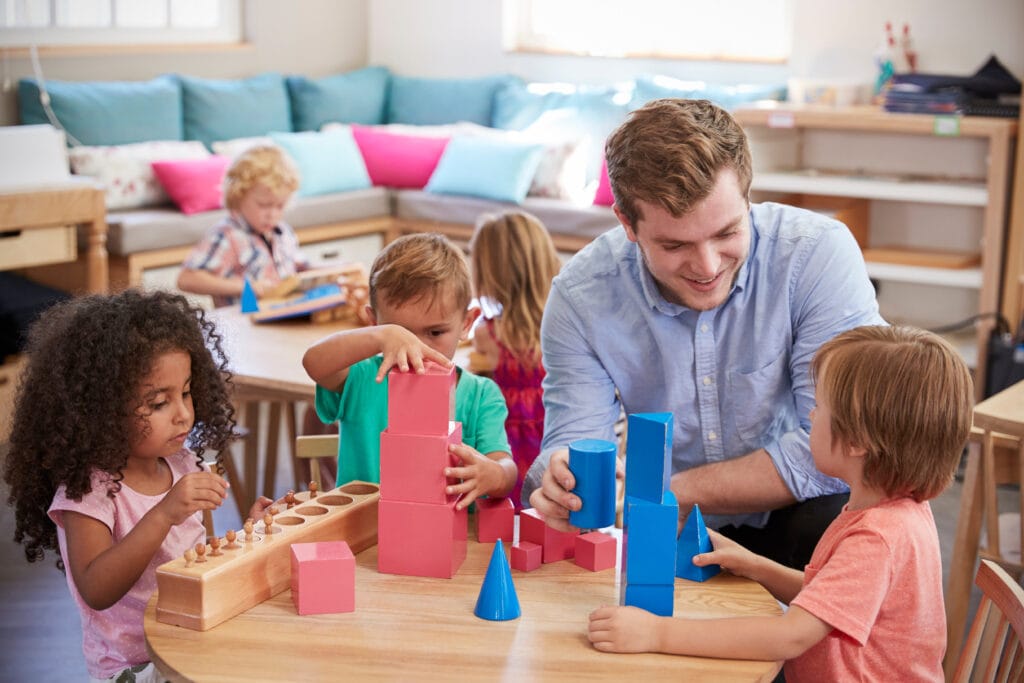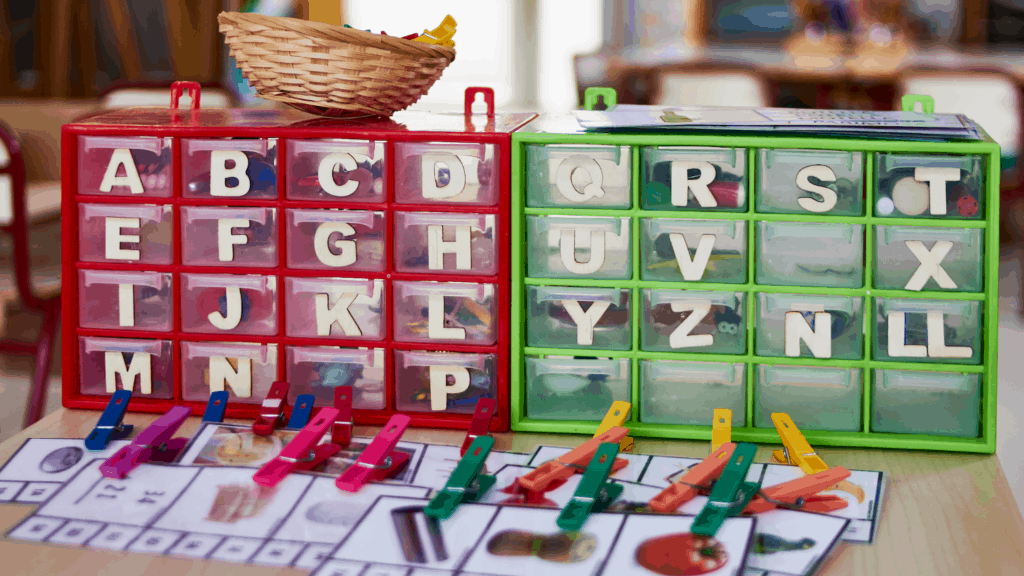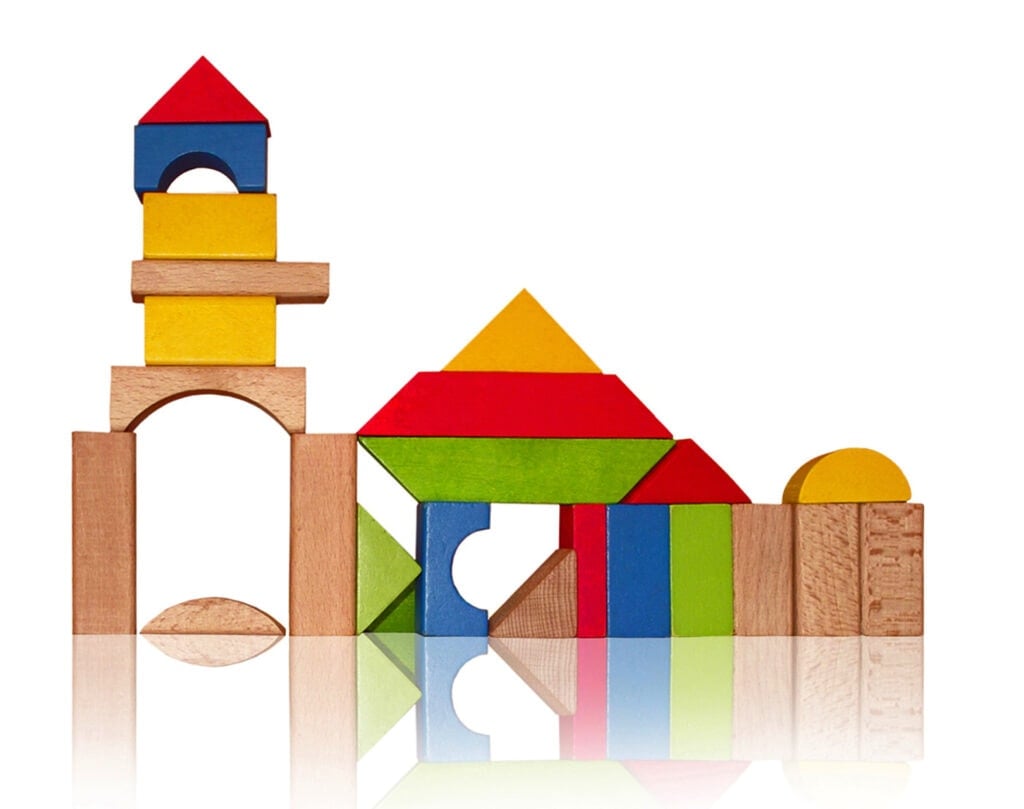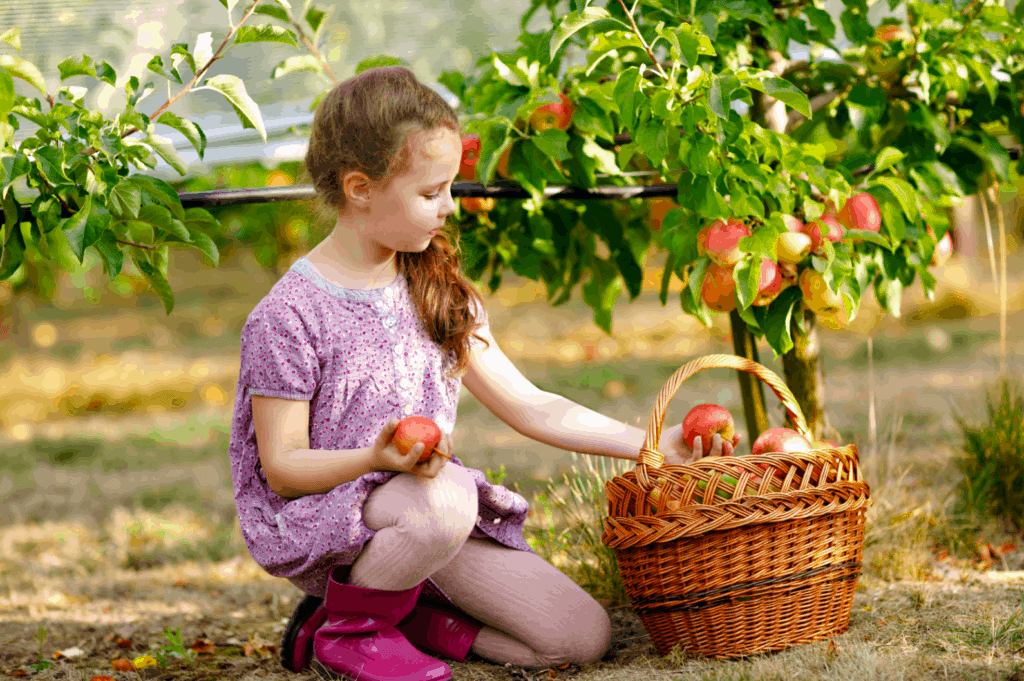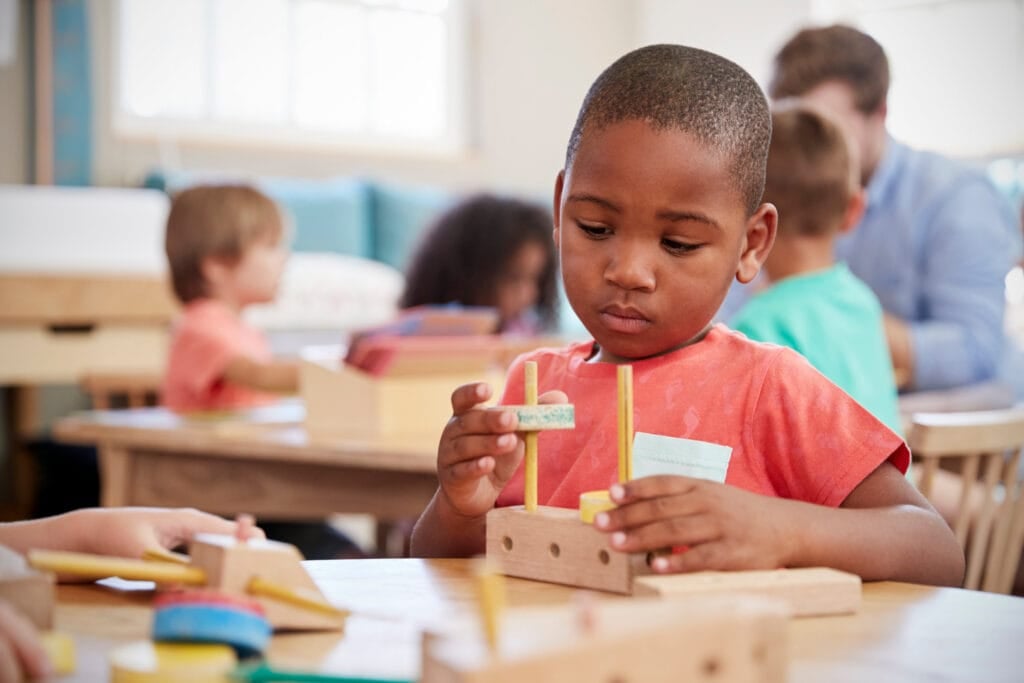Every parent’s dream for their child is to grow up and become an independent adult one day. Those who choose to have their child follow the
The
The
On This Page…
- Promoting Independence the Montessori Way
- Why Montessori Emphasizes Independence
- What Are The Core Principles Of The Montessori Method?
- Play Learning is Essential to the Montessori Way
- How Does Montessori Promote Independence From Infant Age Through Childhood?
- Parents Can Help Encourage a Child’s Independence at Home
- Conclusion
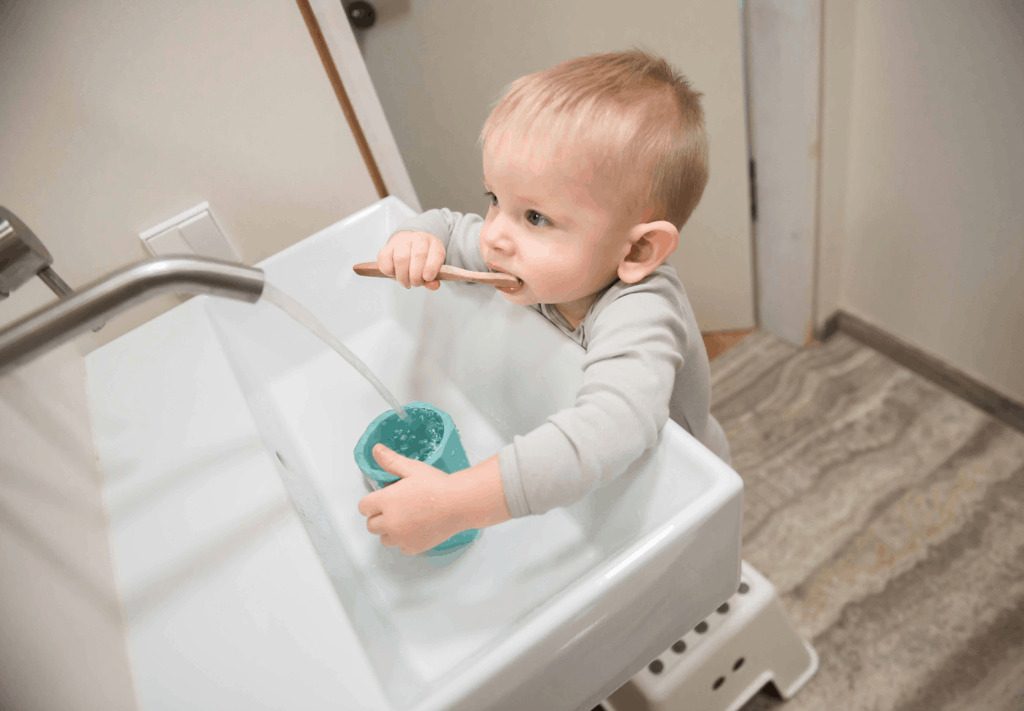
Promoting Independence the Montessori Way
Maria Montessori developed the
Montessori’s method is based around the needs of a child and backed by scientific observations.
- Gentle learning
- Being supervised but not controlled
- Untimed learning
- The ability to make their own choices
Montessori realized a child is capable of far more than many of us assume. When left to make their own choices in an incredibly supportive environment, the child will realize their potential, gain independence, and enjoy increased confidence. Instead of the classroom being taught as a homogenous whole, each child will learn at the pace that fits their individual needs.
Why Montessori Emphasizes Independence
The
The
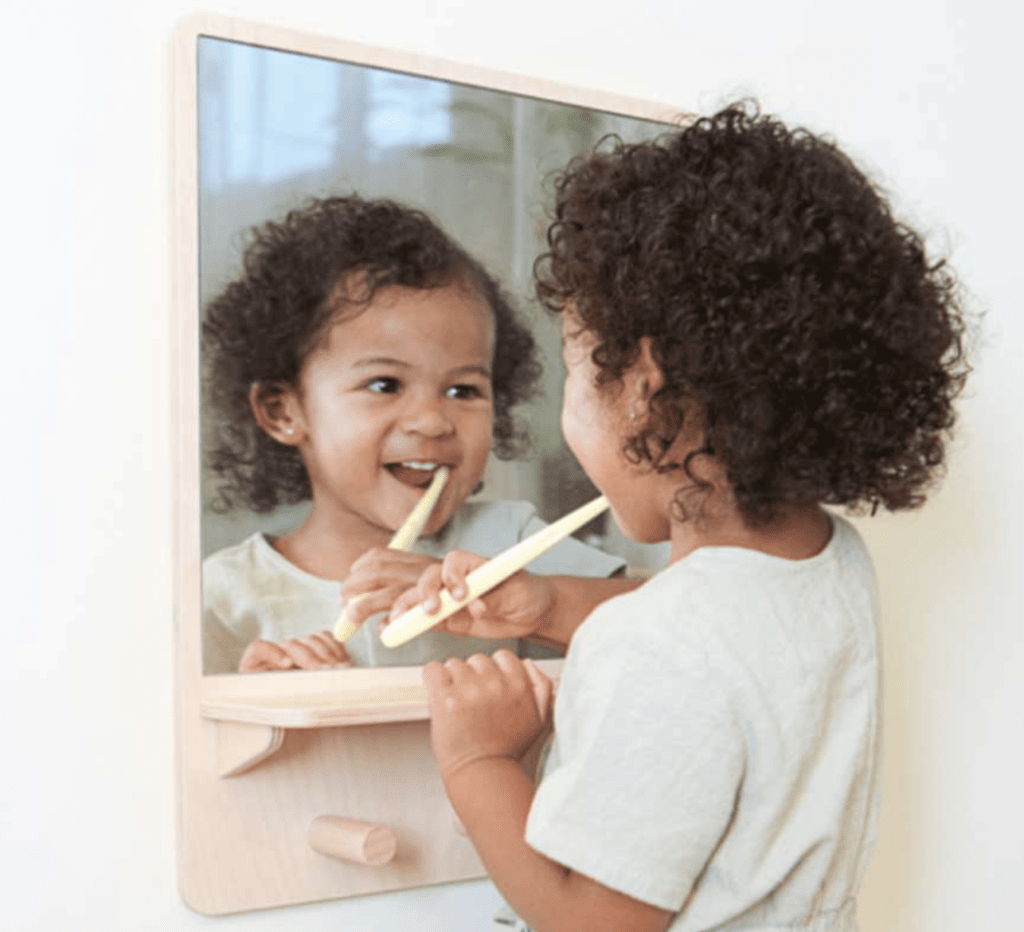
Examples of Helping a Child to Help Themselves
While a traditional class teaches first and foremost to educate, the
- Each time a child finishes a task by themselves, it lights a spark inside of them. They feel confident and happy, which pushes them to try more things on their own. The more they find they can do by themselves, the more it benefits them in the long run.
- A parent or teacher gets out of the way of the child and just observes them finding things out on their own; this creates a child who likes to do things on their own. The child learns to have confidence in themselves to complete a task without being guided.
- Teachers and adults offer a prepared environment. An environment that is mindfully prepared for the young learner’s exploration allows for discovery, learning, and independence.
Waiting on a child hand-and-foot or anticipating their needs before they can find their own solution does not allow them to do tasks they are capable of on their own. In this scenario, even the most loving and well-intentioned adults are stunting what a child’s level of independence could be.
The
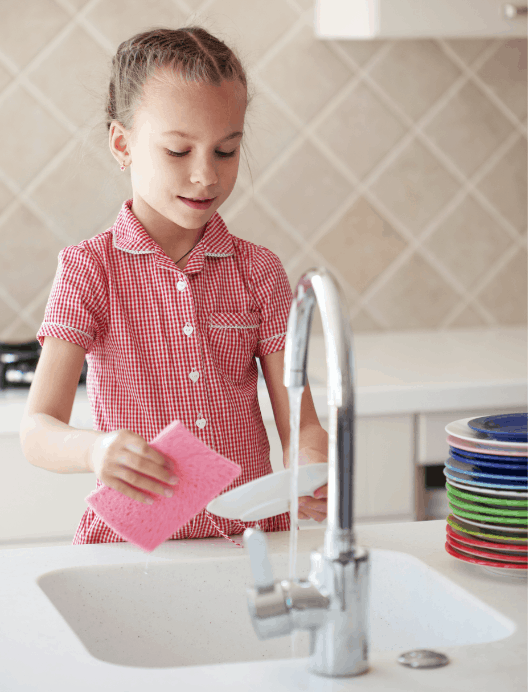
What Are The Core Principles Of The Montessori Method?
In addition to independence, the
| Observation | It is truly quite a simple step. Watching the child, taking in everything they are learning, observing how they explore and have fun learning about the world around them. As you observe the child, you can see how they interact with things and give them gentle guidance and tools to figure things out on their own. |
| Following the Child | As you follow the child, they will show you what they need. You can supply them with the tools needed to push themselves and give them a little bit of a challenge.Try not to be too overprotective as the child explores. Ensure they are safe and out of harm’s way, but let them see how high they can climb, how far they can jump, and how much they can carry. Don’t order them around, instead give them choices to make on their own. Take a step back and watch what they do. |
| Respecting the Child | Just like many adults, children have accidents, make mistakes, and do the wrong thing sometimes. Things are spilled, broken, lost, dirtied, stained, forgotten. Instead of scolding, yelling, or punishing a child when they make a mistake, try to have them help fix the issue. If a child spills their crayons, identify the accident and ask them what they should do or ask them to clean it up. Adults don’t want to be yelled at for a mistake, so why would a child who is still learning, a little clumsier than an adult, and with their brain still developing be yelled at for a simple mistake? |
| Prepared Environment | This is an extremely important part; rooms should cater to a child. Small tables and low shelves with materials that are easily accessible to the child. Safe for them to roam and explore freely. An uncluttered space that is not overwhelming. A child will thrive in the right environment that fit their needs. |
| Absorbent Mind | Children the age of three and under do not need to have an actual lesson to learn. They soak everything in like a sponge. Especially when you think they aren’t listening – children are always tuned in to what is around them. Maria liked the idea of not saying no, they will only repeat it back to you eventually. Instead, the word used is “stop.” This teaches them to stop the behavior they are doing. |
Play Learning is Essential to the Montessori Way
The
As they play, children are learning from something as simple as putting together a puzzle, playing with wooden blocks, setting the table, or acting out a scene from a book. These activities all seem more fun than a chore – and children grow from them in a way that is different from lessons.
In
Whereas an adult feels the need to complete a given task, in
In addition to these principles of play, here are a few others from MariaMontessori.com:
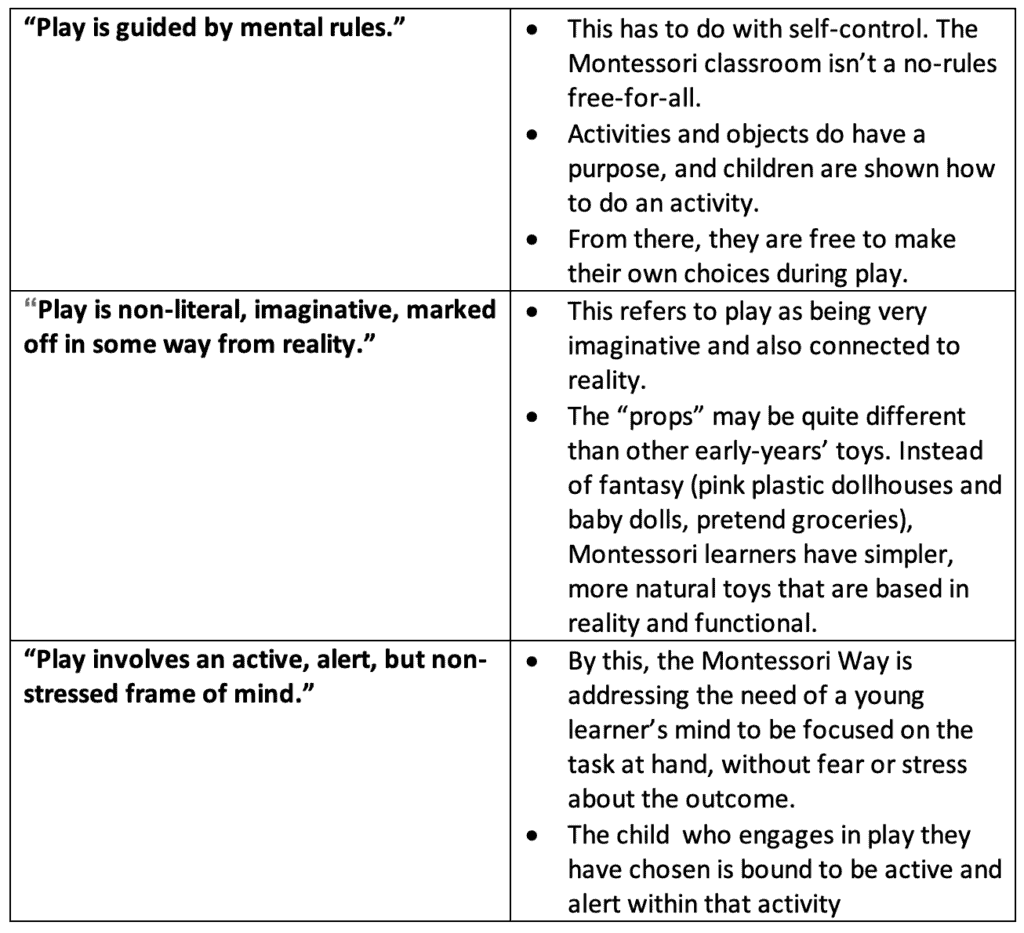
How Does Montessori Promote Independence From Infant Age Through Childhood?
At every step of the way, the
- 5 months old: exploring the home with hands and body
- 10 month old: exploring the safe outside environment
- 12 months old: practicing feeding themselves with a spoon
- 14 months old: practicing washing hands
- 18 months old: practicing dressing themselves
- 24 months old: helping to wash vegetables and fruit
- 2 1/2 years old: helping to water the plants
- 3 years old: helping to wash the kitchen table
- 4 years old: helping to set the table
And so on. Every age-appropriate activity that helps a child to do something for themselves – and even help the parent or teacher – is an opportunity to grow and learn the
At all ages, the child can decide if they want to work together or alone, and what task they would like to do. When a child is happy and enjoys a task, they will thrive at it.
Children can pick their activity and work on it at whatever pace they want. Plenty of time is given to finish an activity so that a child never feels they need to hurry and finish their work. They will get more from the task and enjoy doing it.
Activities for the older children in
No matter how old the child is, starting the
“The greatest sign of success as a teacher is to be able to say: “The children are now working as if I did not exist.” – Maria
Parents Can Help Encourage a Child’s Independence at Home
By letting the child do tasks on their own and venture out to the world to explore with little guidance from you, you’ll see a change in the child and a spark inside of them with just some simple tips on starting. Let your child:
- Set the table for everyone, or at least themselves. Put silverware and plates within their reach.
- Put food on their own plate. You can give them a little advice but let them learn on their own how to scoop/pick up and place things on to plates.
- Clean up after themselves. Throwing away their trash, taking dishes to the sink/ load the dishwasher.
- Put their socks and shoes on. And put them away after they come off.
- Choose their own clothing and dress themselves. Even if things get put on backward, just give minimal guidance.
- Get toys out. And then put them away.
- Choose what activity they would like to do and for how long. If they want to build the same puzzle for an hour repeatedly, they are still learning and perfecting a task.
- Bathroom habits: Brush their teeth, clean up the sink, fold their hand towel.
- Wash in a bath or shower (with supervision for young children for safety.)
- Clean up any mess they may make without punishment or shame. (Let them make the mess, too!)
- Help wash clothes. They can put clothes in the washer or dryer or help sort to sort and fold laundry.
- Household tasks: Sweeping, mopping, vacuuming, dusting.
The child will surprise you with what they can do when you essentially get out of their way. Many children assume they are not allowed or big enough to help. When you allow them to help or do it on their own, their self-confidence will grow.
Conclusion
The Montessori Method successfully prepares the child for growing into a confident and content adult. Letting children learn on their own by exploring the world around them allows them the opportunity to develop and bloom by gaining independence and confidence. The benefits a child gains through
https://montessoriguide.org/help-me-to-help-myself
http://michaelolaf.net/BirthOneToThree.html
